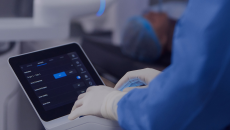Artificial Intelligence
Also, Gleneagles Hospital Chennai in India is embarking on brain health research to develop AI-powered solutions.
In addition to HIMSS25 Europe, Hal Wolf, HIMSS president and CEO, says HIMSS has partnered with Informa on the WHX Tech conference in Dubai and is actively working with the WHO and the EC to help "redesign" European digital health.
AI & ML Intelligence
"These are real lives, potentially extended or saved because an AI system surfaced the right data at the right time, and our teams were equipped to act on it," says the health system's COO. And the tech has helped boost the case closure rate by 50%.
The DGX Cloud Lepton service will make the company's artificial intelligence graphics processing units directly available to developers seeking compute resources across various cloud platforms.
MedGemma, built on Gemma 3, aims to help developers build AI-based healthcare applications with open models, including multimodal and text-only versions.
AI & ML Intelligence
"By making it faster and easier to use the most up-to-date guidelines at the point of care, we anticipate a more consistent application of best practices, which can contribute to improved patient trajectories," says the hospital's CMIO.
Cybersecurity In Focus
Financially constrained hospitals and health systems need federal funding and support to augment their cybersecurity workforces, according to a Health Sector Coordinating Council report to HHS.
AI & ML Intelligence
Dr. Justin Norden, CEO of a generative AI infrastructure company, warns hospitals and health systems to identify ROI, safety issues, risk, governance and long-term value when approaching AI systems and tools.
The platform will use AI, analytics and intelligent clinical applications to create secure and scalable care models.
Expectant moms and those with young children in Cook County, Illinois, will use mobile devices enabled with Google Cloud technologies to access personalized care through Drive Health’s AI-powered Nurse Avery.









